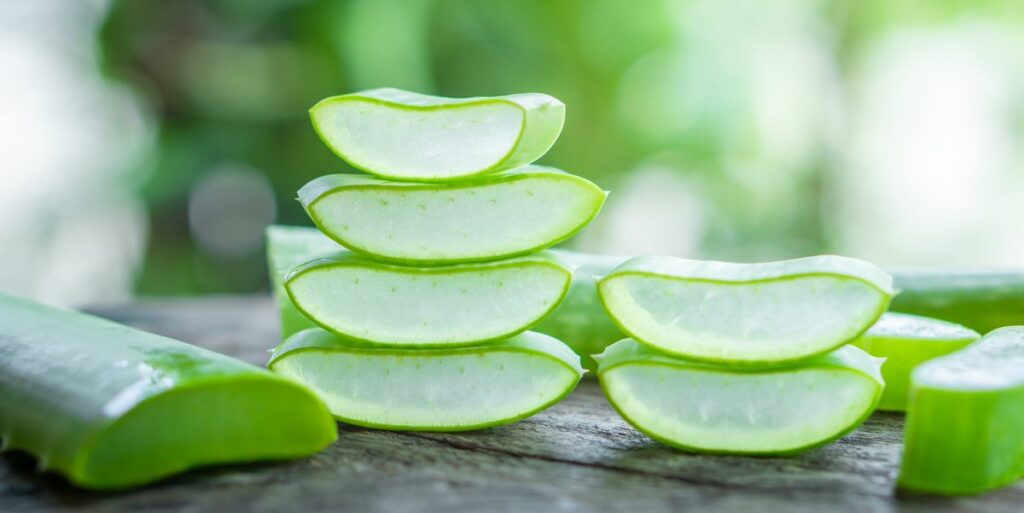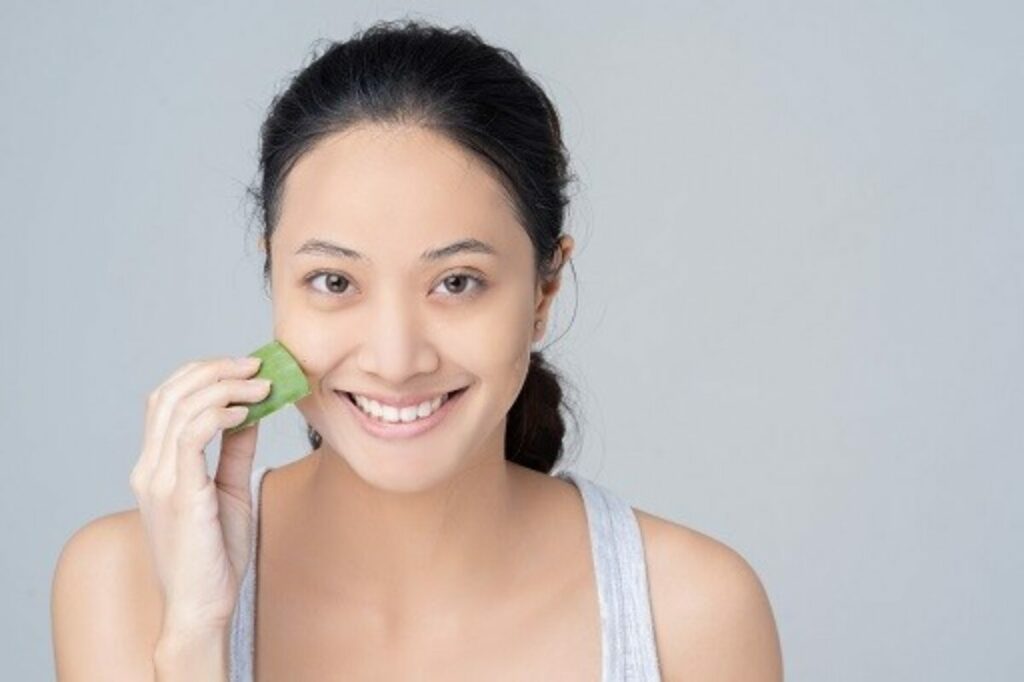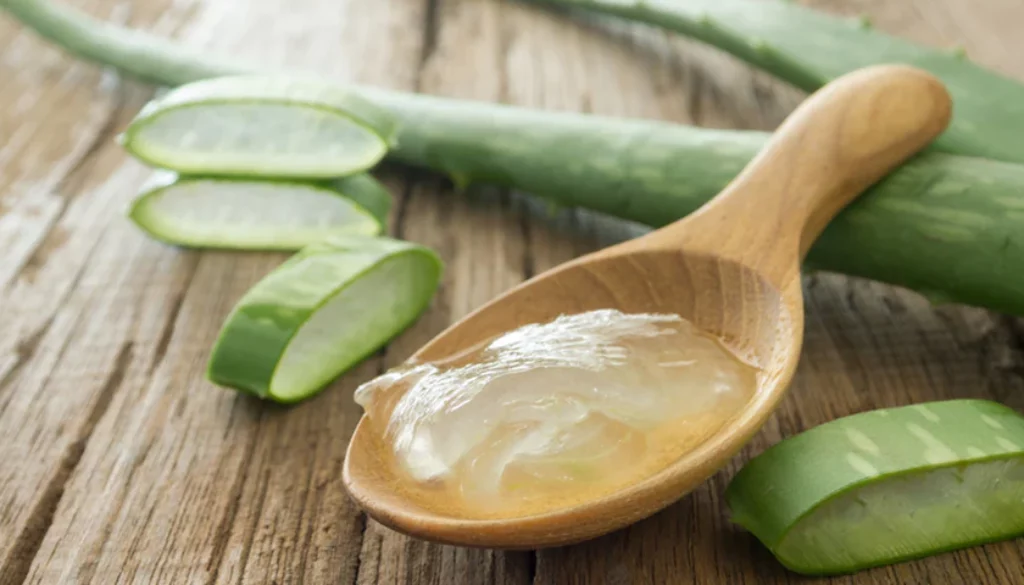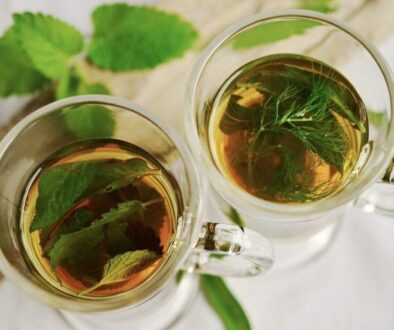Aloe Vera: Nature’s Miracle for Skin and Hair
Aloe Vera is a succulent plant that has been used for centuries due to its numerous health benefits, especially for the skin and hair. Its gel-like substance extracted from the leaves is rich in vitamins, minerals, enzymes, and amino acids, making it an excellent natural remedy. In this article, we will explore the historical significance, nutritional composition, and the various ways in which Aloe Vera can work wonders for your skin and hair.
Historical Significance of Aloe Vera
Aloe Vera has a long-standing history of use in various cultures around the world. Ancient Egyptians regarded it as the “plant of immortality” and used it to heal wounds, soothe burns, and alleviate skin ailments. Similarly, the ancient Indian Ayurvedic medicine system recognized the healing properties of Aloe Vera, incorporating it into treatments for skin diseases and digestive disorders.
Nutritional Composition of Aloe Vera
Aloe Vera contains a plethora of beneficial components that contribute to its healing properties. It is packed with vitamins, including A, C, and E, which are known for their antioxidant properties. Additionally, Aloe Vera provides essential minerals such as calcium, magnesium, and zinc, which are vital for maintaining healthy skin and hair. It also contains enzymes and amino acids that aid in soothing inflammation and promoting tissue repair.
Skin Benefits of Aloe Vera
- Soothes and moisturizes the skin: Aloe Vera gel has a cooling effect on the skin, making it an excellent natural remedy for sunburns, rashes, and dryness. It penetrates deep into the skin, providing hydration and nourishment, leaving it soft and supple.
- Reduces inflammation and irritation: The anti-inflammatory properties of Aloe Vera help in calming irritated and inflamed skin conditions such as eczema, psoriasis, and rosacea. It can alleviate redness, and itching, and promote skin healing.
- Helps in healing wounds and burns: The healing properties of Aloe Vera are well-known for treating minor cuts, wounds, and burns. Its gel forms a protective barrier over the affected area, promoting faster healing and preventing infections.
- Fights against acne and blemishes: Aloe Vera’s antibacterial properties make it an effective remedy for acne-prone skin. It reduces acne-causing bacteria, soothes inflammation, and fades blemishes, resulting in clearer and healthier skin.

Hair Benefits of Aloe Vera
- Promotes hair growth: Aloe Vera contains enzymes that promote hair growth by stimulating the hair follicles and increasing blood circulation to the scalp. Regular use of Aloe Vera can help in achieving thicker and longer hair.
- Maintains scalp health: A healthy scalp is essential for healthy hair. Aloe Vera’s antimicrobial properties help in combating dandruff, dryness, and itchiness, maintaining a balanced scalp environment.
- Reduces dandruff and itching: Aloe Vera’s soothing properties relieve scalp itchiness and reduce dandruff. Its moisturizing effect helps in hydrating the scalp and preventing flakiness.
- Conditions and nourishes the hair: Aloe Vera acts as a natural conditioner, providing deep hydration and nourishment to the hair strands. It makes the hair soft, smooth, and manageable while preventing frizz and breakage.
Aloe Vera in Skincare Products
Aloe Vera gel is widely used in skincare products for its numerous benefits. Its hydrating properties make it an excellent ingredient for face and body creams, lotions, and serums. Aloe Vera gel helps in moisturizing the skin, making it soft and supple. It can penetrate deep into the skin, providing hydration from within.
One of the key benefits of Aloe Vera gel is its ability to soothe and calm irritated skin. It has anti-inflammatory properties that help reduce redness, itching, and inflammation caused by various skin conditions such as eczema, psoriasis, and rosacea. Applying Aloe Vera gel can provide relief and promote skin healing.
Aloe Vera is also known for its anti-aging properties. It contains antioxidants that help in fighting against free radicals, which can cause premature aging and skin damage. Regular use of skin care products containing Aloe Vera can help reduce the appearance of fine lines and wrinkles, making the skin look youthful and radiant.
Furthermore, Aloe Vera gel has antibacterial properties, making it an effective remedy for acne-prone skin. It helps in reducing acne-causing bacteria and preventing future breakouts. Aloe Vera gel can additionally fade acne scars and blemishes, resulting in clearer and smoother skin.
Aside from Aloe Vera gel, Aloe Vera juice is also utilized in skincare products, particularly in cleansers and toners. Aloe Vera juice helps in maintaining the skin’s pH balance, keeping it healthy and less prone to breakouts. It also aids in removing impurities and excess oil from the skin, leaving it clean and refreshed.
Overall, Aloe Vera is a versatile and beneficial ingredient in skincare products. Its hydrating, soothing, anti-aging, and antibacterial properties make it a popular choice for those seeking natural and effective skincare solutions. Incorporating Aloe Vera into your skincare routine can help in achieving healthy, glowing skin.
DIY Aloe Vera Remedies for Skin and Hair
If you prefer natural remedies, there are several simple DIY options to incorporate Aloe Vera into your skincare and haircare regimen. Here are a few DIY Aloe Vera remedies for the skin and hair:
Aloe Vera Face Mask:
- Mix 2 tablespoons of Aloe Vera gel with 1 tablespoon of honey.
- Add a few drops of lemon juice for brightening effects (optional).
- Apply the mixture to your face and leave it on for 15-20 minutes.
- Rinse off with warm water and pat dry. Enjoy the refreshed and nourished skin.
Aloe Vera Scrub:
- Combine 1 tablespoon of Aloe Vera gel with 1 tablespoon of brown sugar.
- Add a few drops of your favorite essential oil for a pleasant scent (optional).
- Gently massage the mixture onto damp skin in circular motions.
- Rinse off with water and reveal smoother, exfoliated skin.
Aloe Vera Hair Mask:
- Mix 3 tablespoons of Aloe Vera gel with 1 tablespoon of coconut oil.
- Add a few drops of your preferred essential oil for fragrance (optional).
- Apply the mixture to your hair, focusing on the scalp and ends.
- Leave it on for 30 minutes to an hour and then wash your hair as usual.
- Enjoy nourished, shiny, and healthy-looking hair.
Aloe Vera Hair Conditioner:
- Combine 2 tablespoons of Aloe Vera gel with 1 tablespoon of apple cider vinegar.
- Add a few drops of your favorite essential oil for a pleasant scent (optional).
- After shampooing, apply the mixture to your hair, focusing on the lengths and ends.
- Leave it on for a few minutes, then rinse thoroughly.
- Experience soft, manageable hair with added shine.
These are just a few DIY Aloe Vera remedies for the skin and hair. Feel free to experiment and modify the recipes based on your preferences and specific needs. Remember to perform a patch test before trying any new ingredient or recipe to ensure compatibility with your skin and hair. Embrace the natural power of Aloe Vera and enjoy the benefits it brings to your beauty routine.
Precautions and Side Effects of Using Aloe Vera
While Aloe Vera is generally considered safe for topical use, it’s important to be aware of certain precautions and potential side effects. Here are some key points to keep in mind:
Allergic Reactions:
Some individuals may be allergic to Aloe Vera. Before using any Aloe Vera product, it’s advisable to perform a patch test on a small area of your skin. Observe for any signs of allergic reactions such as redness, itching, or swelling. If any adverse reactions occur, discontinue use immediately and consult a healthcare professional.
Overuse and Potential Risks:
Although Aloe Vera is beneficial, using it excessively or for prolonged periods may lead to skin dryness or irritation in some individuals. It’s important to follow recommended usage guidelines and not overapply Aloe Vera gel or products. Moderation is key to avoiding any potential risks.
Interactions with Medications:
Aloe Vera may interact with certain medications, either topically or when ingested. If you are taking any medications, particularly immunosuppressants or blood thinners, it’s advisable to consult with your healthcare provider before using Aloe Vera products to avoid any potential interactions or adverse effects.
Sun Sensitivity:
Some individuals may experience increased sensitivity to sunlight after using Aloe Vera topically. It’s recommended to avoid excessive sun exposure and use sunscreen when using Aloe Vera gel or products on exposed skin.
Internal Use Precautions:
While this article focuses on the topical use of Aloe Vera, it’s important to note that ingesting Aloe Vera gel or products is not recommended without proper guidance. Aloe Vera juice or supplements should be used cautiously and under the guidance of a healthcare professional, as they may have different effects on the body and can interact with certain medications.
Always consult with a healthcare professional or dermatologist if you have any concerns or specific medical conditions before incorporating Aloe Vera into your skincare or wellness routine. It’s important to prioritize your safety and well-being when using any natural ingredient or product.

Conclusion
Aloe Vera truly stands as nature’s miracle for both skin and hair. Its rich nutritional composition and soothing properties make it a versatile ingredient in skincare and haircare products. Whether you choose commercially available Aloe Vera products or opt for DIY remedies, incorporating this natural powerhouse into your routine can offer numerous benefits. Embrace the wonders of Aloe Vera and witness the transformation of your skin and hair.
FAQs
- Can Aloe Vera be used on sensitive skin?
Aloe Vera is generally well-tolerated by sensitive skin, but it’s essential to perform a patch test before using it extensively. Monitor your skin’s reaction and consult a dermatologist if any irritation occurs. - How often should I use Aloe Vera on my hair?
It is recommended to use Aloe Vera on your hair once or twice a week, depending on your hair’s needs. You can adjust the frequency based on how your hair responds to the treatment. - Can Aloe Vera help with scalp conditions like seborrheic dermatitis?
Aloe Vera’s anti-inflammatory and moisturizing properties can provide relief to the scalp affected by seborrheic dermatitis. It can help soothe itchiness and reduce flakiness. - Is Aloe Vera effective in fading acne scars?
Aloe Vera’s skin-healing properties can help fade acne scars over time. Regular usage, combined with proper skincare, can contribute to reducing the appearance of acne scars. - Can Aloe Vera be used on colored or chemically treated hair?
Yes, Aloe Vera is safe to use on colored or chemically treated hair. It can help restore moisture and improve the hair’s overall health, regardless of any prior treatments.
Also Read:
The Ultimate Guide to Glowing Skin: Tips and Tricks



